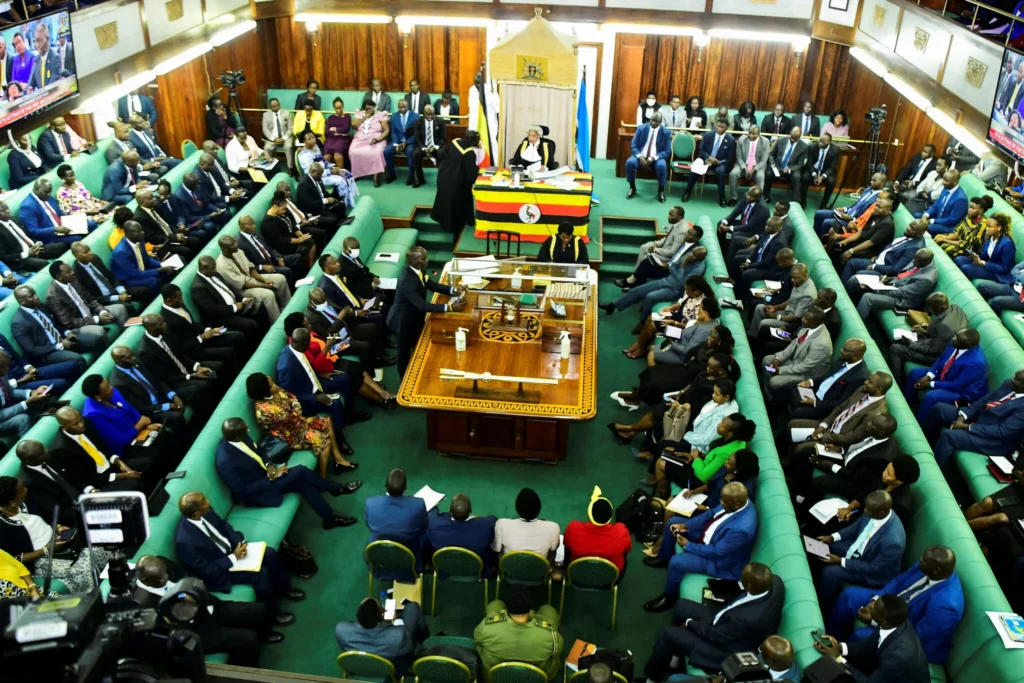On May 27, 2025, Uganda’s parliament passed an amendment to the Uganda Peoples’ Defence Forces (UPDF) Act, reinstating the authority of military tribunals to prosecute civilians. This move comes despite a January 2025 Supreme Court ruling that had declared such military trials unconstitutional.
The decision has ignited protests from opposition leaders, who argue that the amendment violates the Supreme Court’s ruling and undermines civilian rights. They cite concerns about the lack of independence and appeals in military courts.
For the past 20 years, human rights activists and opposition figures have criticized the use of military tribunals to try civilians, claiming it is a tactic used by the government to silence dissent. The government, however, rejects these claims.
Parliament confirmed the law’s passage in a post on the X platform. Muhoozi Kainerugaba, head of the military, praised the parliament and government lawmakers for their support, calling them “fearless patriots” and stating that “Uganda will remember your courage and commitment.”
Defending the amendment, military spokesman Chris Magezi said it is designed to tackle “armed violent criminals,” deter the formation of militant political groups, and safeguard national security.
During the debate in parliament, opposition MP Jonathan Odur described the law as “shallow, unreasonable, and unconstitutional,” emphasizing that there is no legal justification for trying civilians in military courts.
The bill now awaits President Yoweri Museveni’s signature to become law.
Earlier this year, the Supreme Court declared that military courts do not have the legal mandate to conduct fair trials for civilians. This decision had led to the transfer of opposition leader Kizza Besigye’s case to a civilian court. Besigye, who was arrested in Kenya in 2024 and brought back to Uganda for trial on charges including treason, has consistently denied the allegations, calling them politically motivated.
Besigye has contested four presidential elections against President Museveni. In 2018, another prominent opposition figure, Bobi Wine, was charged in a military court for allegedly possessing illegal firearms, though those charges were eventually dropped.
Human Rights Watch has repeatedly condemned Uganda’s military courts, arguing they fall short of international standards for fairness and independence. The group has also accused military courts of relying on torture-obtained evidence and failing to uphold fundamental trial principles—allegations the military denies.

